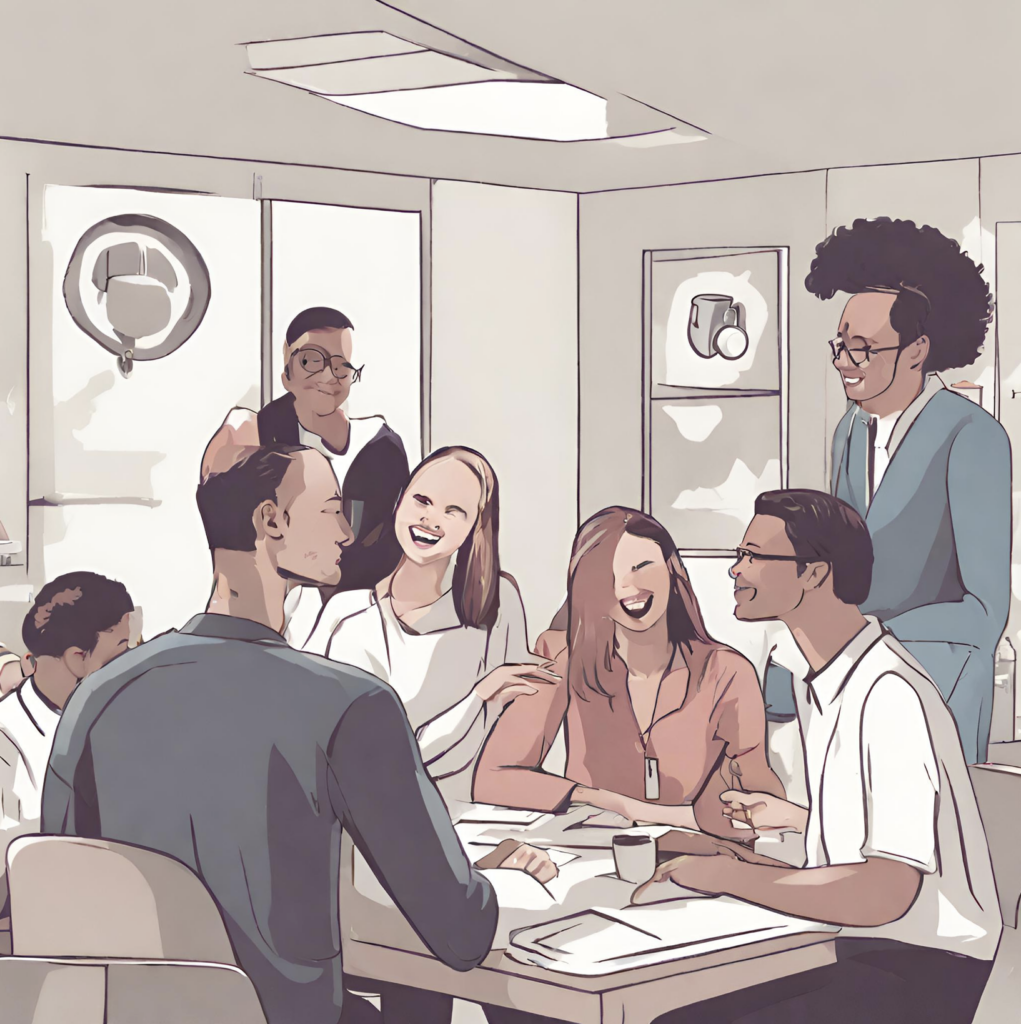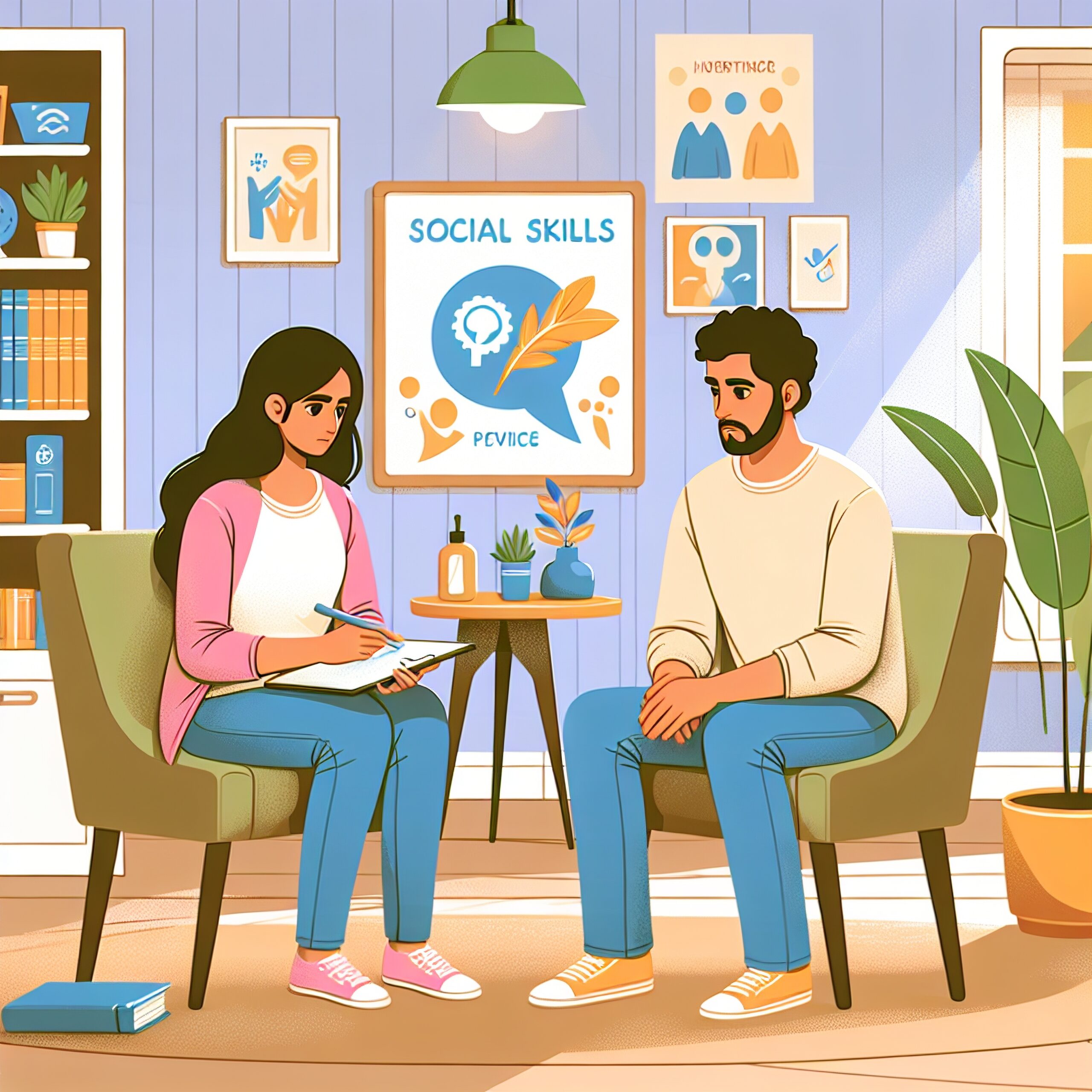Autism Spectrum Disorder (ASD) is a neurodevelopmental condition characterised by challenges with social interaction, communication, and repetitive behaviours. Social interaction can be a particularly complex area for individuals with autism, often leading to feelings of isolation and frustration. However, autism and social skills coaching can be a powerful tool in helping individuals navigate the social landscape and build meaningful connections.
Understanding Social Skills Difficulties in Autism
Social skills encompass a broad range of abilities, including:
- Non-verbal communication: Reading and interpreting facial expressions, body language, and tone of voice.
- Verbal communication: Initiating and maintaining conversations, using appropriate language for the situation, and understanding turn-taking.
- Social cognition: Understanding social cues, recognising emotions in others, and understanding social norms and expectations.
- Empathy: The ability to understand and share the feelings of others.
Individuals with autism may experience difficulties in any or all of these areas. Some common challenges include:
- Nonverbal communication: Reading facial expressions, body language, and tone of voice can be challenging. Misinterpreting these cues can lead to misunderstandings and awkward interactions.
- Theory of mind: This refers to the ability to understand that others have their own thoughts, feelings, and intentions. Difficulty with theory of mind can make it hard to predict how someone might react or feel in a situation.
- Social reciprocity: Initiating and maintaining conversations, taking turns, and understanding social norms can be complex.
- Sensory processing: Oversensitivity to certain sounds, smells, or textures can make it overwhelming to focus on social cues or engage in interactions.
- Difficulty making eye contact.
- Taking things literally and missing sarcasm or jokes.
- Difficulty understanding social cues and unwritten rules.
- Appearing withdrawn or disinterested in social interactions.
These challenges can make it difficult for people with autism to make friends, participate in social activities, or build relationships. Autism and social skills aims to bridge this gap and equip them with the tools they need to navigate social situations with greater confidence and understanding.

The Benefits of Autism and Social Skills Coaching
Coaching offers a range of benefits for individuals with autism who struggle socially, including:
- Improved communication skills: Learning to use nonverbal cues effectively, initiating and maintaining conversations, and adapting communication styles for different situations.
- Enhanced social cognition: Developing the ability to understand social cues, recognise emotions in others, and navigate social norms.
- Increased self-awareness: Gaining a better understanding of their own social behaviours and the impact they have on others.
- Reduced anxiety: Learning coping mechanisms to manage anxiety associated with social interactions.
- Greater confidence: Building the skills and knowledge needed to participate in social activities more confidently.
- Improved social relationships: Developing and nurturing stronger friendships and connections with others.
Autism and Social Skills Coaching Techniques
Autism and social skills coaching can involve a variety of techniques, tailored to the individual’s specific needs and learning style. Here are some common approaches:
- Strength-based approach: Focussing on incorporating client strengths to overcome social and emotional challenges.
- Direct instruction: Teaching social skills explicitly, breaking them down into smaller steps, and providing clear explanations.
- Modelling: Demonstrating social skills through role-playing, video demonstrations, or social stories.
- Practice: Providing opportunities to practice social skills in a safe and controlled environment, such as role-playing scenarios or group activities.
- Feedback: Offering constructive feedback to help individuals improve their communication and social interaction skills.
- Positive reinforcement: Rewarding positive social behaviours to encourage their development.
- Visual aids: Using visual tools like pictures, charts, or social scripts to support learning and understanding.
The Role of Coaching in Everyday Life
Autism and social skills coaching can extend beyond sessions and into daily life. Here are some ways parents, carers, and educators can support social skills development:
- Provide opportunities for social interaction: Encourage participation in social activities, clubs, or sports teams.
- Model appropriate social behaviours: Demonstrate positive social interactions with others.
- Use clear and concise language: Avoid sarcasm or complex instructions.
- Break down social situations: Explain social cues and expectations beforehand.
- Offer positive reinforcement: Praise efforts and celebrate social successes.
- Remember that those with autism have different brain wiring: Avoid reacting to behaviours negatively or with frustration. It is more likely than not that the autistic individual is unaware or confused about appropriate behaviours. Use these situations as teachable moments.
Finding the Autism Coach
The effectiveness of autism coaching depends on finding a qualified and experienced practitioner. Here are some factors to consider when choosing a coach:
- Qualifications: Look for a coach with experience working with individuals with autism and a relevant qualification in social work, psychology, or education.
- Approach: Consider the coaching approach and whether it aligns with the individual’s learning style and needs.
- Experience: Ask about the coach’s experience working with social skills in autism.
- Communication style: Choose a coach with a positive and encouraging communication style.

Building a Supportive Network
Autism and social skills coaching can be a powerful tool, but it’s important to remember that it’s a journey, not a destination. Patience, support, and a focus on progress are key. Additionally, building a supportive network of friends, family, and professionals is crucial for individuals with autism to thrive socially. By fostering a sense of understanding and inclusion, we can create a world where everyone feels empowered to connect and participate meaningfully.
Remember:
- Autism coaching is not about becoming neurotypical, but about developing strategies that work for the individual.
- Every person with autism is unique, and their social skills needs will vary. Social skills coaching can be a lifelong process, offering ongoing support and guidance as individuals navigate different social situations throughout their lives.
Conclusion
Social interaction can be a complex dance, but with the right support and strategies, individuals with autism can develop the skills they need to connect with others and build meaningful relationships. Autism and social skills coaching offers a valuable tool for empowering them to navigate the social landscape with confidence and participate actively in the world around them. By fostering a more inclusive and understanding environment, we can ensure everyone has the opportunity to connect and thrive.

Useful Links
These links provide a variety of resources for both individuals with autism and those who support them. They can be helpful for learning more about social skills coaching, finding relevant resources, and understanding social skills development in autism.
- The Very Versatile Lemon: Offers ADHD and autism coaching, including that with a focus on social skills, to clients in Australia and worldwide. Katie has lived experience with autism and has a background in education, with over 12 years experience working in schools.
- National Autistic Society: Provides information and resources on autism, including social skills development.
- Autism Speaks: Offers resources on social skills development for individuals with autism and their families.
- Social Skills Activities for Children with Autism: Provides free downloadable resources for developing social skills in children with autism.
- Raising Children Network : Provides tips and strategies for helping children with autism develop social skills.
- The Jed Foundation: Offers information on the social skills challenges faced by individuals with autism.
- Autism at King’s College London: Provides a research-based view of social communication difficulties in autism.
- Understood.org Offers information on the different aspects of social skills and how they can be impacted by autism.
Remember: It’s important to choose resources and coaching services from reputable organisations with experience working with autism.

Be the first to comment